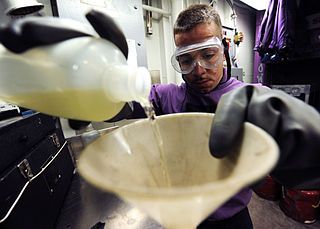Talking Up Synthetic Fuels at the Energy Efficiency Summit

I responded that I thought that my client in this space, if he were here, would say, “We don’t need 16. One is plenty — if it has sufficient energy density (e.g., high-octane gasoline, high-grade diesel, or jet fuel), and, just as importantly, if it can be done cost-effectively.”
The speaker smiled and acknowledged the validity of my point. I went on to explain that these people have, in fact, “cracked the code” here. In the course of the networking break, I directed quite a few people to the Windfuels website. We’ll see what comes from it.

Hi Craig.
Thanks for putting us forward.
🙂
And of course you’re response – that cost effectiveness is the most critical consideration – is accurate.
I’m not sure what the graduate student was thinking when he used the curious number of 16… There would be hundreds of actual hydrocarbon chain species that would result from FTS using either a cobalt or an iron catalyst. Most of those species would be able to be blended into broad headings such as “gasoline”, “diesel”, and “jet fuel”… but there are thousands of products that the world enjoys that currently come from fossil oil. Attempts to replace gasoline – regardless of how plausible or foolish they might be – ranging from bio-ethanol to stuff like hydrogen fuel cells or EV’s all fail to consider the rest of these products that are quite critical to society. Plastics, rubbers, solvents, cleaners, waxes, tar, etc… all are produced from oil. If the “solution” – results in a reduced usage of gasoline, while all of the rest of these products are still demanded, we won’t significantly reduce our need from oil, we’ll just have excess hydrocarbons that are in the gasoline range… and the price of gasoline would drop and the market would correct again.
The WindFuels process can directly synthesize hundreds of different hydrocarbons, and every single petroproduct used in society today could be produced from WindFuels products.
THAT could result in a future that uses less oil – rather than having a marginal ability to disturb the market for a few years before market forces revert everything back to the mean.
I’m with you all the way. It’s bizarre that we haven’t been able to get more traction with this concept. All we can do is continue to hammer away.
We certainly appreciate it.
Thanks again.
🙂